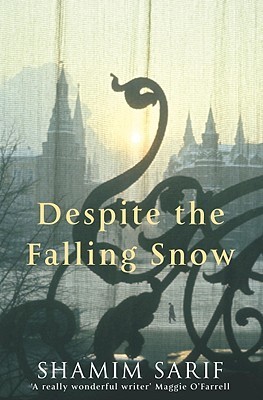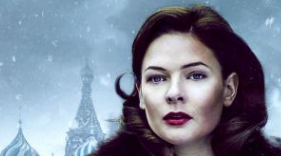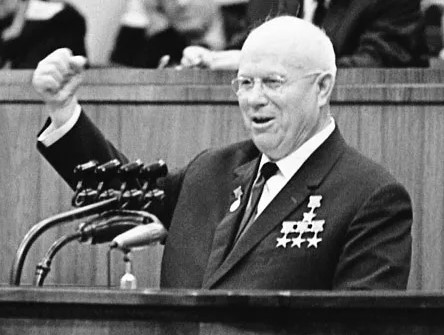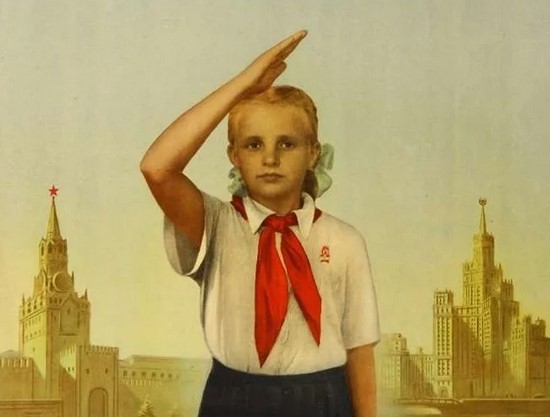
On the Russia in Fiction blog, we categorise books according to their temporal setting. Shamim Sarif’s Despite the Falling Snow is set in Moscow in the Khrushchev years of the late 1950s and in Boston in the late 1990s. Yet somehow Russia in Fiction always thinks of it as being a novel about the Stalin era.
That this impression prevails is credit to Shamim Sarif. Thematically, Despite the Falling Snow could be summed up as an exploration of the way in which the inhuman brutality of Stalinism wreaks its deep emotional damage decade after decade, generation on generation, even following its victims halfway round the globe.
Alexander (Sasha) Ivanov is a successful businessman in Boston, Massachusetts at the end of the 20th century. He is also a former Soviet civil servant who defected to the US during the Khrushchev era. Despite his material riches and outwardly settled assimilation into US society, deep inside he has never recovered from the death of his young wife, Katya, the love of his life, in Moscow around the time of his defection.

Despite the Falling Snow is structured around parallel stories of Alexander’s life.
In the 1990s, he and his grown-up niece Lauren —with whom he has a relationship that is more father-daughter than uncle-niece— grow close to Estelle Johnson and her daughter Melissa. Melissa Johnson is heading up the purchase of Alexander’s business, and gradually forms a close relationship with Lauren. Estelle is a frustrated author, looking for a subject. She is married to a Professor of English Literature, but finds in Alexander not just a potential subject to write about, but also a more sympathetic supporter of her dreams than is her somewhat self-occupied husband.
In the 1950s, the story of Alexander’s life-defining tragedy unfolds. He is a rather naïve young official in the Soviet government. Protected from the harshest realities of the Stalin years by his family’s standing, he has an untested commitment to the Communist ideal, and is optimistic that still brighter times are ahead under the reforming leadership of Nikita Khrushchev.

Then he meets and falls in love with Katya.
Unlike Alexander, Katya had met the full force of Stalinist brutality head on. During the Stalin years, her happy childhood was smashed apart without warning in a matter of minutes. Sitting around the family meal table with her parents and brother one evening, there was a knock on the door, NKVD security personnel entered the apartment and took her parents away. She never saw either of them again.
When she was twelve, and she watched her mother and father being hustled out of their apartment with guns pressed to their heads, leaving half-finished plates of food behind them, her heart broke. Where it had been, there remained only a hollow, into which she swallowed her tears of terror at what they might do to her parents, and the desperate fear that she could not speak, the crude fear of a child being left all alone.
Despite the Falling Snow, Chapter 8
As Misha —who serves as matchmaker between Katya and Alexander— explains
“My parents knew her parents. They were university professors. They were taken. Years ago. During the war … Khrushchev’s speech came too late for them.”
Alexander’s frown deepens.
“For what reason?”
Misha almost snorts with laughter. An excess of vodka is sharpening everything he feels, making him lapse into stating what they all already know.
“For what reason! The same reason as everyone else. They were declared ‘enemies of the people’. For no damn reason. Some asshole who worked with them probably wanted their jobs, or their apartment or something, and turned them in.”
“Imprisoned?” he asks.
“No. they got their eight grams.”
It has been a while since Alexander has heard that expression —the slang for the bullet in the head, the reference being to the weight of that bullet.
Despite the Falling Snow, chapter two.
Katya’s response to tragedy is to turn her fear into a hatred for the Soviet regime, and a determination to undermine it. She is outwardly loyal —to the extent of denouncing her parents and vowing loyalty to the Communist Party.
Katya … began her campaign for acceptance and credibility in the Party long ago as a young Pioneer. In her smart uniform —a red hat and scarf over a white shirt, which were some of the best pieces of clothing she owned— she had stood in an orderly row and sworn solemnly to uphold the ideals of Lenin and Stalin.
Despite the falling snow, chapter four


But as she grows up, Katya begins to work for the Americans. It is in this capacity that she first gets close to Alexander, with the aim of gaining access to and passing on information from the ministry where he works. That she and Alexander gradually fall deeply in love and marry one another brings questions of loyalty and difficult decisions to the fore.
The structure of Despite the Falling Snow means that the reader knows early on that the love story of Katya and Alexander ends in heartbeak, with her death in Moscow leaving him, alone and bereft, to build a new life in the United States. The novel’s narrative momentum comes from the determination of Alexander’s niece Lauren to unearth the story behind Katya’s death. She travels to Moscow, with Melissa, to find the surviving Russian protagonists in this tragedy.
Alongside this central plot line, Sarif’s characters are convincingly developed; their motivations and enthusiasms, their fears and passions.
And how does Russia fare in this fiction?
Moscow in the 1950s is lightly drawn. The atmosphere of shortage and poverty alongside official privilege is clearly set out. Most of the specific references are fairly standard. Particular events —for example, Khrushchev’s ‘Secret Speech’, Boris Pasternak being awarded the Nobel Prize for Literature— are noted. We get Alexander’s reminiscences about how he felt when first arriving in the US from Moscow.
“I remember it so well, even now … Coming from Russia, I had never seen so much food. So much fresh food. So many wonderful breads and cakes, and fruit and meat all in one place.”
Despite the Falling Snow, chapter one.

There is also that favourite story of Russia-in-fiction novels seeking to reference Stalin’s fearsome and capricious nature, namely the tale of how the Hotel Moscow, next to Red Square, came to have an asymmetrical frontage
“The architect who designed it submitted two different plans to Stalin,” she tells him.
“And they were both signed off. Or perhaps neither were. Something like that — I forget the details. Anyway, the man was too terrified to ask which design Comrade Stalin actually wanted. So he built half one way, and the other half the other way.”
“Is that true?” he asks her.
She shrugs and smiles, but without the pleasure.
“I think so. It could be true anyway, and that’s what is important.”
Despite the Falling Snow, chapter four

From the Russia-in-fiction perspective, the stand-out pages of Despite the Falling Snow come when Katya eventually reveals her secret anti-Soviet life to her husband, and servant of the regime, Alexander.
To avoid the possibility of being overheard via microphones they fear may have been installed in their apartment, Katya and Alexander sit on a bench in a nearby park. There, despite the cold and falling snow, Katya delivers a corruscating and personal denunciation of the Soviet regime. It is reminiscent of that delivered by the character of Natalya in Donald James’s Monstrum.
There is no better way to sum up Despite the Falling Snow, and to end this review, than to quote Katya’s cri de couer at length. Even if not in full.
“You know I look at things differently from most people, but I have never told you how differently. I hated Stalin. I hated his government. I hated his paranoia that infected the whole country, so that it became everyone’s paranoia. To not be suspicious, to not be sneaky, to not be fearful – would have meant to not be alive. To survive, your neighbour had to reveal five names of traitors, whether he even knew them or not. So that you never knew who was watching you, or was being beaten at that moment into giving your name as an enemy of the state, just because they had to give someone’s name. I hated the so-called communist ideal that could allow people like Beria to rape as many young girls as he wanted, and that let Khrushchev and Molotov and all the rest of them live in huge houses and eat well while the working people starved. I hate the fact that, even now, we have a ‘proletarian aristocracy’. I know, because I married into it …
Is that what communism is supposed to be about?…
I don’t hate the communist system because it has been abused, Sasha. I hate it because it cannot work, even when there isn’t a dictator in charge. It stifles people, it kills freedom of thought and expression, everyone and everything must be the same, uniform. Well, people are not the same. There is no room here for artists, writers, poets. Look what they just did to Pasternak. The whole world is praising his book, he won this prize, the Nobel prize. And here, in his homeland, he is driven to despair. Treated like a criminal. It is unforgivable, Sasha. And it’s not just writers. If anyone, a farmer, or a clerk, a train driver, wants to work extra hard and try and make something of himself, or if he wants to invent something, or try to do something he enjoys or loves, is that so wrong? Or if someone has a good business idea – why should that person not be able to do as he pleases, and even make money and live in the big house that now only a politician can live in? At least he would be there on merit. That’s how it is in America …
From the age of 13, I knew what I wanted to do with my life. Most people don’t, ever. Especially here, where there is no room for wanting. We just do what we’re told, don’t we? …
I wanted to fight the system that had caused my parents, two kind, intelligent, innocent people to be brutally killed. I wanted to revenge the pain they put me through. Taking my own mother away from me. And from Yuri. And millions of other children. Shame on them … Shame on them. How did we let them get away with it for so long?
Despite the falling snow, chapter sixteen